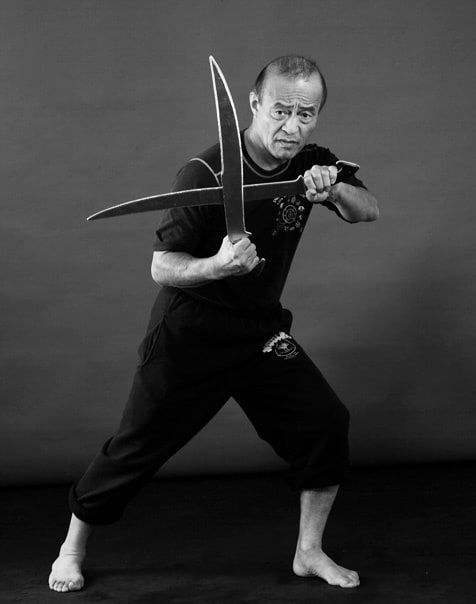Feature Article: What's in a Word?
- Mark Jacobs
- Sep 29, 2023
- 3 min read

The use of terminology in Asian-based martial arts is always a hotly debated topic. Most of the non-Asian practitioners of these arts aren't fluent in their language of origin, let alone the nuances of their historical context, and so toss terms like "soke" around without fully grasping what they mean.
One particularly interesting - and contentious - word that frequently gets argued over within the Filipino martial arts community is "kali." Though often used interchangeably with "arnis" or "eskrima" as a catchall phrase to describe Filipino weapon arts, some practitioners of these arts claim kali is actually the ancient mother art from which all Filipino fighting styles descend. Yet no one is really sure where the word comes from or what it means.
The word itself does not seem to appear anywhere in the written record until 1957 when a martial artist named Placido Yambao authored the first book on Filipino fighting methods. Written in the Tagalog language, the book Mga Karunungan sa Larung Arnís actually refers to the arts
Yambao practiced as "arnis." Though kali is named in the introduction as a pre-hispanic source for arnis, it's been reported that it was actually Yambao's editor and co-author, Buenaventura Mirafuente, and not Yambao himself, who wrote this section. Mirafuente gives no source for his information or where he got the word "kali."
Over the years there's been much speculation on where this term originates with various suggestions put forth that it's a composite of two or more words, that it's a version of the word "kalis" (sword) or that it refers to the Hindu goddess Kali.
Yet given that there are so many contradictory explanations, combined with the fact they rarely come with much proof beyond "my teacher told me this..." means none of these explanations really carries much weight.
Most of the serious academic scholars who've examined the history of Filipino martial arts seem to doubt the historicity of "kali" with many claiming that older Filipino masters never heard of the word prior to the 1960s. True, the Philippines are a vast chain of islands with a wide variety of languages but if kali was really some sort of mother art from which the more modern arnis/eskrima sprang, you would think more people would have at least heard mention of it.

Many of those arguing in favor of the historical validity of the term "kali" seem to be martial artists associated with Dan Inosanto or Leo Gaje Jr., two instructors who both favor the use of the word and have made claims of its ancient origins.
Though both these men are brilliant martial artists, neither is an academic historian trained in researching such matters. Gaje, despite his being one of the earliest advocates of the term kali, actually referred to his martial art of pekiti-tirsia as "arnis" when he first came to the United States and only later began referring to it as kali. Meanwhile, according to long-time Inosanto student Cass Magda, Inosanto picked up the term from Filipino martial arts instructor Ben Largusa, while Largusa himself got the term from the book Asian Fighting Arts by Donn Draeger and Robert W. Smith.
Draeger and Smith's use of the term appears to come from Placido Yambao's book, the only written source given for their chapter on Filipino martial arts. So it seems all "kali" roads lead back to Yambao, or to his co-author, Mirafuente.
Nevertheless, many supporters of the term kali will have none of this saying just because no one can find any evidence of an ancient art called kali, or even the word itself as referring to a particular martial art, prior to 1957, that doesn't mean it didn't exist. But as always, the burden of proof is not on people to disprove an assertion, it is on the person making the claim - in this case that kali was a word used to describe an ancient Filipino martial art - to prove its truth. And there simply doesn't appear to be any credible proof available.
While words of Spanish origin like "eskrima" or "arnis" may not be fully satisfactory to many Filipino martial artists as an overall term to describe the fighting arts of these islands, perhaps a better solution is for people to just use another term originally coined by Inosanto, the less catchy - but more accurate - phrase "Filipino martial arts" to describe... well... Filipino martial arts.